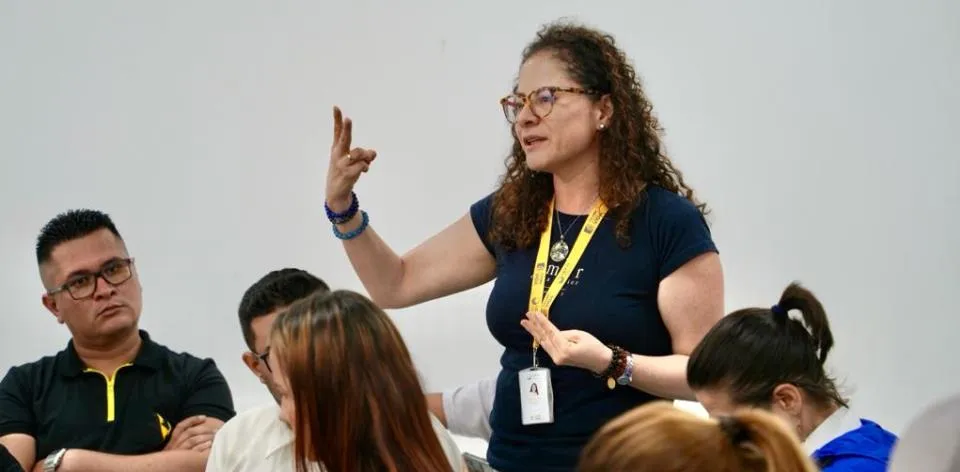PRESS ROOM
 29/2/2024
29/2/2024
UPRA is present at the first Peasant Popular Assembly in Caquetá

Florencia, Caquetá, (@UPRAColombia, @claudialili76). In order to create a space to address various issues in the agricultural sector of the Caquetá department, the main peasant associations and national government entities held the first session of the Peasant Popular Assembly of the department.
During this session, the Agricultural Rural Planning Unit (UPRA) participated in working groups to implement the National Agrarian Reform System, specifically in subsystems 2: Establishment of Peasant Reserve Zones and Other Peasant Territories, and 3: Resolution of Socio-environmental Conflicts and Territorial Planning Figures.
"We presented to the peasant associations gathered in the Subsystem 3 table the importance of territorial planning with planning tools; such as Areas for the Protection of Food Production (APPA); these areas are a mandate of the National Development Plan, located within the Agricultural Frontier, and constitute determinants for territorial planning and a norm of higher hierarchy to protect the Human Right to Food", explained Claudia Liliana Cortés López, General Director of UPRA.

During this session, progress was made in forming the Departmental Committee for Agrarian Reform and municipal committees.
"A large part of the Caquetá department is located in Forest Reserve Zones (L. 2.a), which means that land ownership cannot be granted. With the environmental sector, we are working on regularization of occupation to develop sustainable productive projects. Another challenge involves peasant communities in national parks; with them, we are working on conservation agreements. The Ministry of Agriculture and Rural Development (MADR) is coordinating with affiliated entities, including UPRA, which is responsible for providing the analyses and information that will enable us to make the best decisions", explained José Luís Quiroga, Director of Social Organization of Property and Productive Soil Use at MADR.
The national government seeks to establish spaces for consultation between entities and peasant organizations, which are allies for the protection of the Amazon.
"We received a call from MADR to coordinate, to find out what will happen to the people who live in Peasant Reserve Zones of Law 2.a, who live in Parks; we want to work together with the government and understand the mechanisms for forming Agrarian Reform Committees, how their implementation will be, and how work routes will be established", stated Arístides Ochoa, president of the Cartagena del Chairá Association of Boards.
The National Agrarian Reform System plans, coordinates, executes, and monitors activities that materialize Agrarian Reform and Integral Rural Reform, aiming to guarantee the rights of the rural population. It comprises eight subsystems:
- Guarantees for access to land
- Establishment of Peasant Reserve Zones and other peasant territories
- Resolution of socio-environmental conflicts and territorial planning figures
- Access to goods, rights, and basic services (land adaptation, roads, education, health)
- Research for agricultural development
- Economic promotion for peasant, Afro-descendant, and indigenous communities.
- Access to financing products
- Constitution of ethnic territories.
The National Agrarian Reform System originated from Law 160 of 1994 and was regulated through Decree 1406 of 2023, defining its functions; and with its implementation, the goal is to achieve the coordination of public policies for the rural population.

